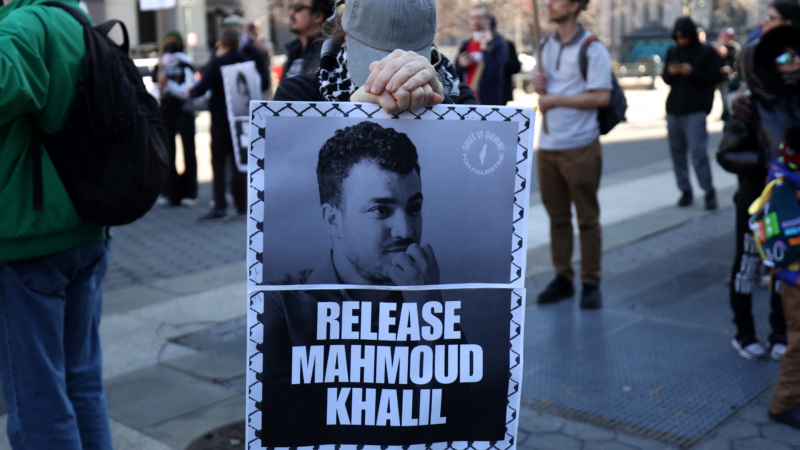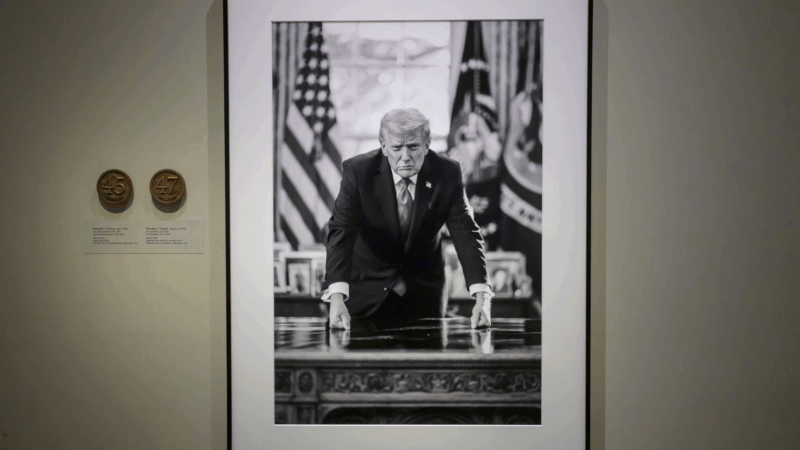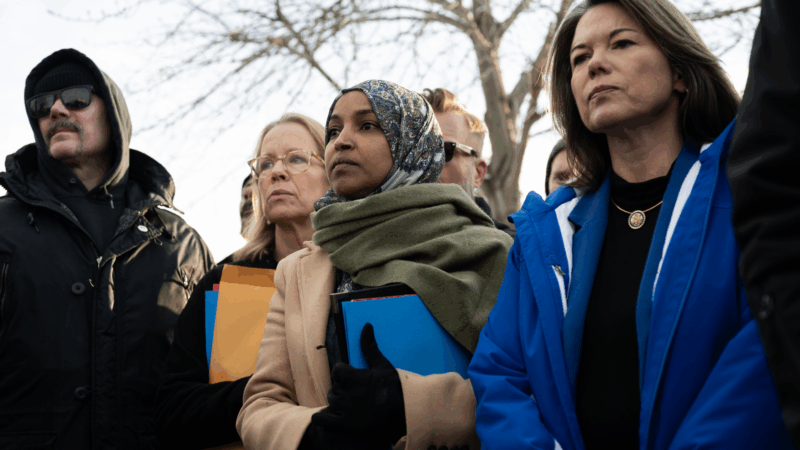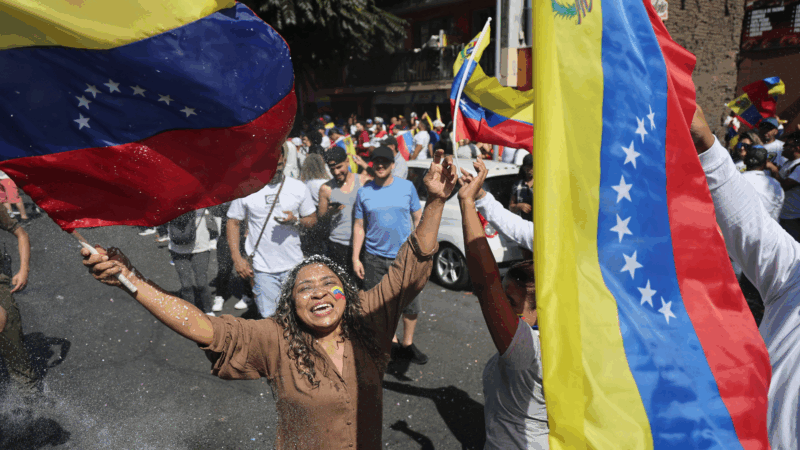White House says immigration officials are seeking more pro-Palestinian protesters
The White House is defending the arrest of pro-Palestinian protest leader and Columbia University graduate student Mahmoud Khalil, and says the Department of Homeland Security plans to arrest more protesters moving forward.
On Tuesday afternoon, White House Press Secretary Karoline Leavitt said the decision to arrest Khalil, a green card holder who is of Palestinian descent, fell in line with President Trump’s recent executive order aimed at cracking down on antisemitism on U.S. campuses. The order allows the administration to revoke visas and deport international students if they’re determined to be “pro-jihadist” or “Hamas sympathizers.”
“Since the President signed that executive order, and since Secretary [Kristi] Noem has taken the oath at DHS, they have been using intelligence to identify individuals on our nation’s colleges and universities, on our college campuses, who have engaged in such behavior and activity, and especially illegal activity,” Leavitt said.
While Leavitt did not offer an estimate of how many additional arrests could be coming, she said she knew that “DHS is actively working on it.” Leavitt noted that Columbia had been given names of other individuals on campus “who have engaged in pro-Hamas activity,” but said the school has refused to help DHS.
Leavitt’s comments echoed remarks by President Trump, who on Monday said his administration “will find, apprehend, and deport these terrorist sympathizers from our country — never to return again.”

Columbia did not immediately respond to a request for comment following Leavitt’s remarks. In a statement released Sunday, Columbia said there had been reports of ICE officers around campus and that the school “has and will continue to follow the law.”
“Consistent with our longstanding practice and the practice of cities and institutions throughout the country, law enforcement must have a judicial warrant to enter non-public University areas, including University buildings,” the statement said. “Columbia is committed to complying with all legal obligations and supporting our student body and campus community.”
Khalil, who was awaiting his diploma this spring, was one of the pro-Palestinian student protesters who negotiated on behalf of Columbia students last year as they protested Israel’s war with Hamas in Gaza and demanded that the university divest from Israel.
On Saturday, he was arrested in his university-owned apartment building by ICE agents and is now being held in the Jena/LaSalle Detention Facility in Jena, La.
Khalil’s lawyers have since filed a habeas corpus challenge arguing that Khalil’s detention is unlawful. A hearing in his case is expected Wednesday.
Baher Azmy is the legal director at the Center for Constitutional Rights, one of the groups representing Khalil. In an interview with NPR, he characterized Khalil’s arrest as a “chilling use of executive power,” and rejected claims that Khalil engaged in activity that could be deemed antisemitic.
“All he has ever done is advocate for the human rights of Palestinians and try to draw attention to the urgent issue of an ongoing genocide against Palestinians,” he said. “The executive branch does not get to decide what speech they think … is offensive and punishable. That principle couldn’t be more central to American democracy.”
Khalil’s arrest came just a day after the administration canceled $400 million in federal grants to Columbia, saying the school failed to curb antisemitism on its campus.
Columbia was a site of significant political division within its student body in response to the ongoing war between Israel and Hamas. Last fall pro-Palestinian demonstrators staged massive protests on the campus, eventually resulting in arrests and the university moving its classes fully remote for the rest of the spring term.
NPR’s Joel Rose contributed to this report.
National Portrait Gallery removes impeachment references next to Trump photo
A new portrait of President Trump is on display at the National Portrait Gallery's "America's Presidents" exhibition. Text accompanying the portrait removes references to Trump's impeachments.
America’s top figure skaters dazzled St. Louis. I left with a new love for the sport.
The U.S. Figure Skating National Championships brought the who's who of the sport to St. Louis. St. Louis Public Radio Visuals Editor Brian Munoz left a new fan of the Olympic sport.
DHS restricts congressional visits to ICE facilities in Minneapolis with new policy
A memo from Homeland Security Secretary Kristi Noem, obtained by NPR, instructs her staff that visits should be requested at least seven days in advance.
Historic upset in English soccer’s FA Cup as Macclesfield beat holders Crystal Palace
The result marks the first time in 117 years that a side from outside the major national leagues has eliminated the reigning FA Cup holders.
Venezuela’s exiles in Chile caught between hope and uncertainty
Initial joy among Venezuela's diaspora in Chile has given way to caution, as questions grow over what Maduro's capture means for the country — and for those who fled it.
Sunday Puzzle: Pet theory
NPR's Sacha Pfeiffer plays the puzzle with KAMW listener Daniel Abramson of Albuquerque, N.M, and Weekend Edition Puzzlemaster Will Shortz.








